|
On February 29, 2024, the Rowan Writing Arts Department was honored to have award-winning author Nana Kwame Adjei-Brenyah on campus for a live reading of his novel, Chain-Gang All-Stars — which was a national bestseller, New York Times’ Top 10 Book of the Year, and a finalist for the National Book Award. Prior to the main event, Adjei-Brenyah held a “fireside chat” Q&A panel with several Writing Arts students at James Hall. All were given a copy of Chain-Gang All-Stars, to which some had already read and came ready with questions concerning the story and others who were just excited for the opportunity to chat with an author like Nana Kwame. Regardless of the classroom setting, there was never a moment where we felt detached from talking, and what stood out to me was the reality of the room — a room full of writers learning from another. While Adjei-Brenyah answered many questions centered around Chain-Gang All-Stars and his previous work Black Friday, he also discussed his writing process and the thoughts, feelings, and habits that coincide with it. When asked about long-term writing, he mentions that the art of creating a novel isn’t about the novel itself but about the smaller pieces — that focusing so much on creating something as long as a novel could easily burn you out. “No one writes a novel. But they did write a bunch of sentences.” Part of the process, he mentions, is understanding how those small foundational pieces matter. “How can I make this sentence matter — how the syllables sound in that sentence? Do they flow? Does it sound like a person? Does it sound like That Person?” When discussing this piece-by-piece way of writing, there was something that personally clicked: that the focus on phrasing, punctuation, and musicality of your own piece are all things that don’t go away as you continue to read and write. (Which is something further stapled by Adjei-Brenyah’s reading of his novel later on.) With writing, Adjei-Brenyah hones-in on habit — that once you keep rolling with a set of words each day as part of a routine, you’ll find your “itch to write”. Writing becomes less like a burden and more of a necessity, grounding you in the process. “Get your mind to get used it.” Moreover, Adjei-Brenyah also touches on his love for the revision process over the draft process. He calls his writing as “superimposing intention” — that if you write with purpose, all you need to do when returning to it is making sure it’s made clearer with every revision. And most of all, emphasizing that fact of simply putting the idea down first and fixing it later. This idea would circle back into his thoughts of approaching novel writing and feeling your finality as part of the intention of your story. Following the fireside chat, Adjei-Brenyah’s main event took place at Boyd Recital Hall, which many students, faculty, and visitors came excited with their love for him and his work. Prior to him coming to the stage, two amazing Writing Arts students and Poetic Justice executive board members Maureen Castle and Mia-Sara King performed their original spoken word pieces. Although their pieces touched on two drastically different perspectives, the both of them stunningly set up the passion in hearing writing come to life. While the pieces themselves already weighed-in with their experiences and their emotions, you felt their intention in the words as they spoke. In other words, it felt much less like a performance and more a showcase of who they are and who they want to be. There was a specific shift from when Adjei-Brenyah walked on stage to when he started reading excerpts within Chain-Gang All-Stars. After a welcoming introduction from co-organizer Amy Woodworth, Adjei-Brenyah was a warm, welcoming presence in himself. But the room suddenly weighed in silence as he began reading — an air that felt different than the person that just introduced himself. Adjei-Brenyah began with the prologue to his book (to which he notes: “always read the prologue”); one that immediately took everyone’s attention whether this is your first interaction to the novel or your one in many. Other excerpts included audience participation of chants and hums that existed in various points of the novel. Being in that crowd, his vision within the words came out of the pages, almost like a conductor at the front of his orchestra or a director leading a table read. There, Adjei-Brenyah immediately made known that superimposed intention he had stated before — that purpose in writing. We can sometimes gloss over novels like they’re textbooks, but hearing everyone hum in unison to a scene that translates to the ultimate defeat in something as unconquerable as the prison system wasn’t just heard but intentionally felt. Following the reading, there was a Q&A held for the larger audience which was moderated by Professor Ariana Tucker. Adjei-Brenyah expanded on story choices within Chain-Gang All-Stars, specifically his deep-dive research into the inherent racism and classism of the American prison system and how it embeds itself into a plethora of organizations complicit in its violence. He also puts into perspective the purpose of making his main character, Loretta Thurwar, a black queer woman. A highlight of the Q&A was in discussing the weapons that she and the other characters used, such as his accident symbols of a hammer and scythe through death and labor that he was originally inspired by the anime Soul Eater. Adjei-Brenyah also expanded on some earlier topics of the fireside chat concerning the writing process and why we write in the first place. One question led to him to discussing very passionately that someone will need your writing even when you don’t think so. He exemplifies that writing is an art that might not create as obvious of a result as something like sculpting, but someone will find the need in it — that someone will need your writing. While it can be easy to discuss about Nana Kwame Adjei-Brenyah and Chain-Gang All-Stars by their successes, what’s more to it is a writer and his book, a person and their story. From both events, students didn't take away the step-by-step process of becoming a successfully known author; they didn't need to because that wasn’t the purpose. Adjei-Brenyah exemplified why personal purpose is all the more important, especially in an art like writing. Just as long as you allow it to find its own finality. Thank you to Nana Kwame Adjei-Brenyah for visiting Rowan University and the Writing Arts Department faculty, staff, and students for making this event. Armaine Dela Cruz
0 Comments
Leave a Reply. |
Archives
May 2024
Categories |
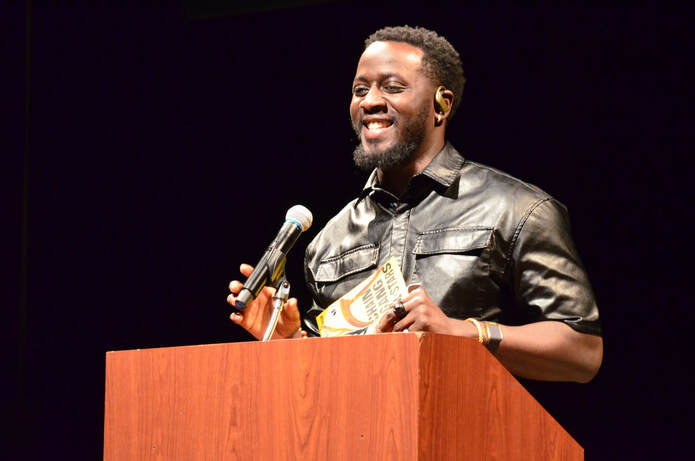
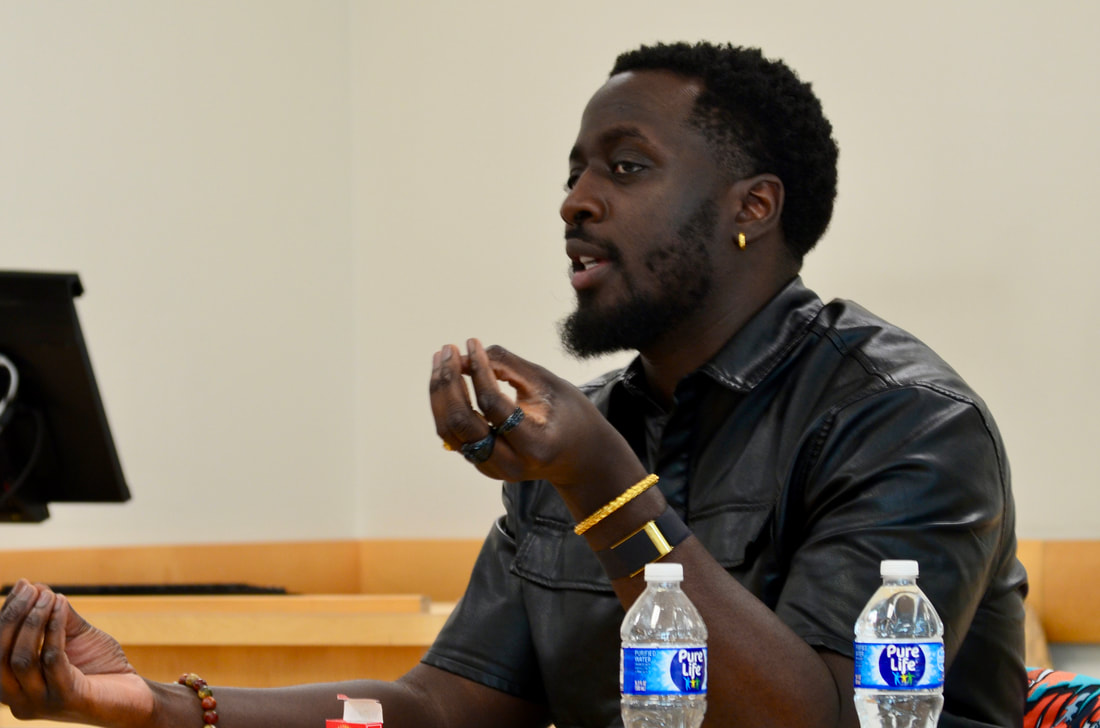
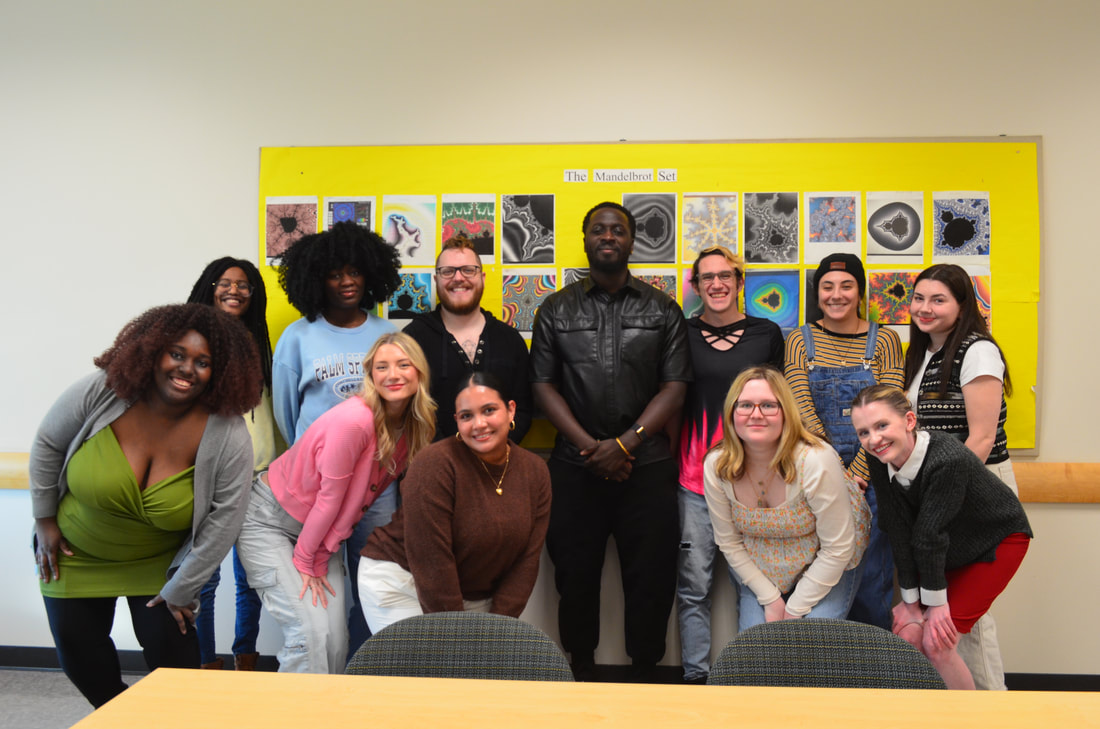

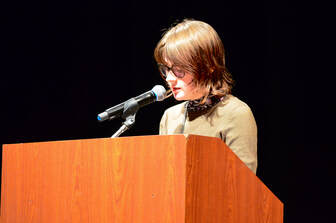
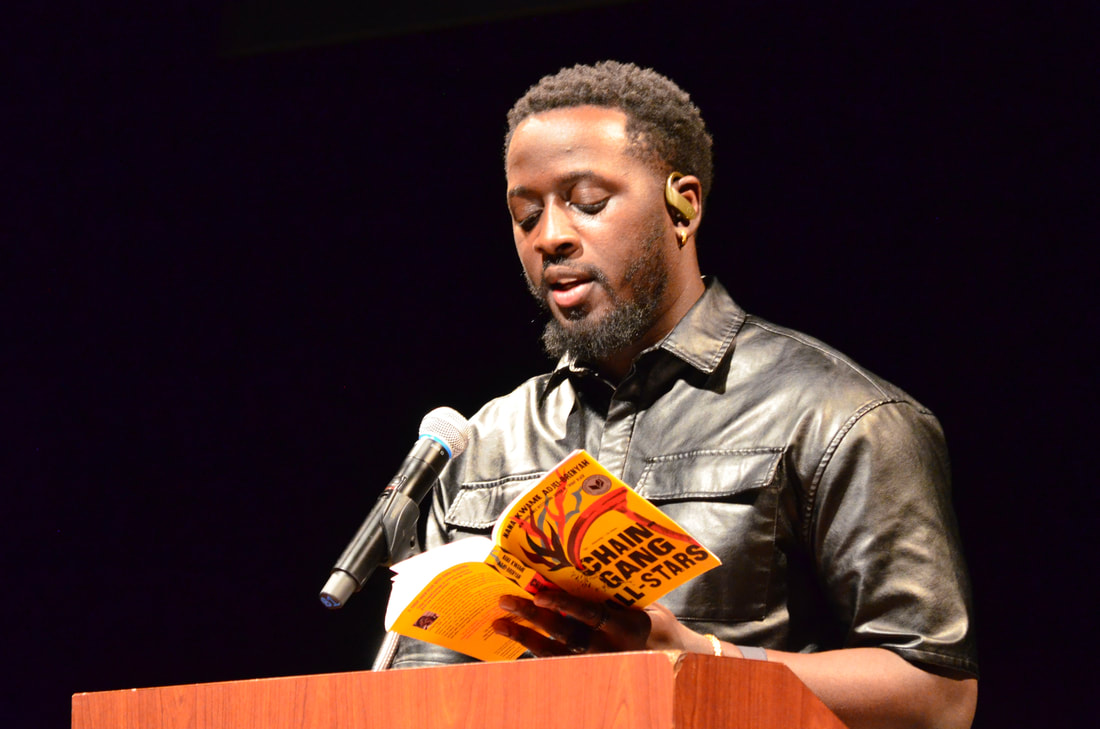
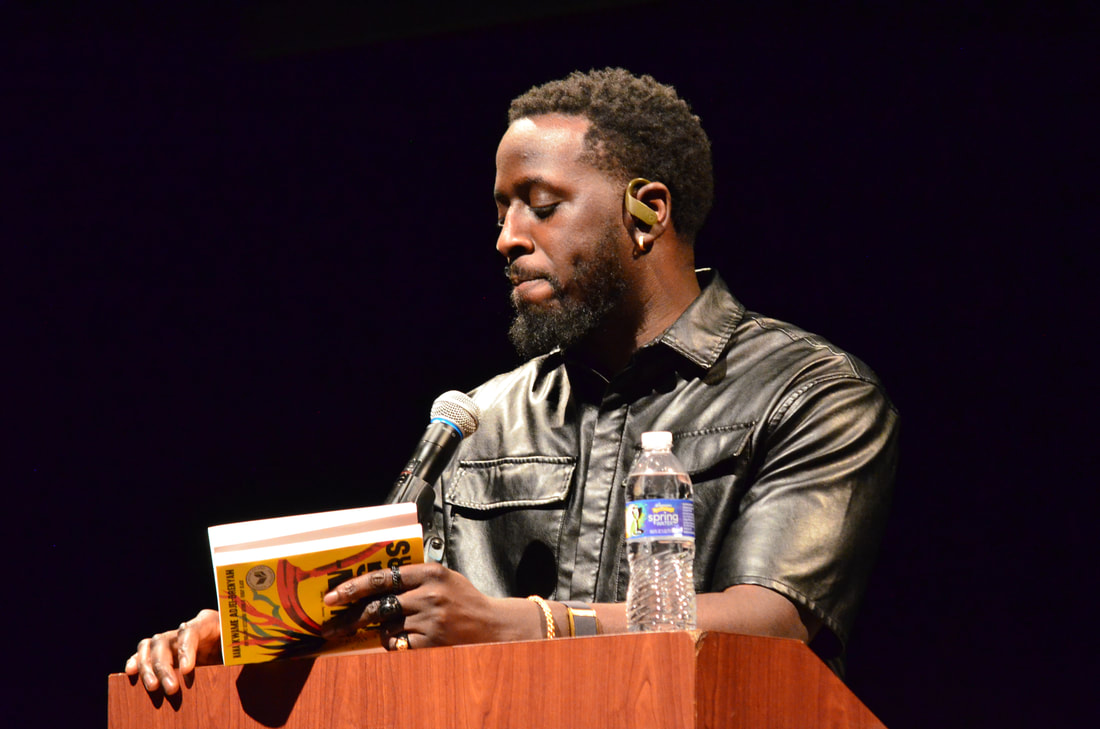
 RSS Feed
RSS Feed